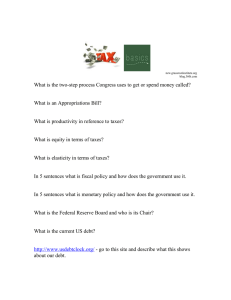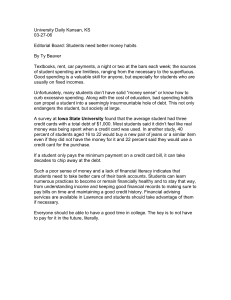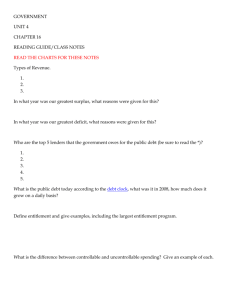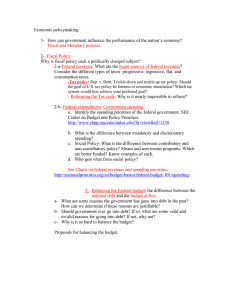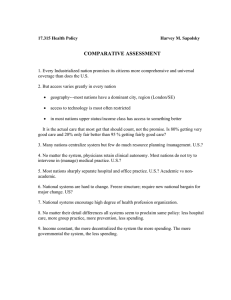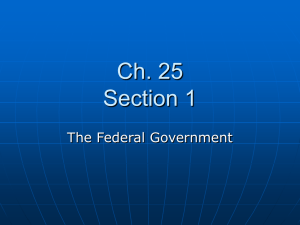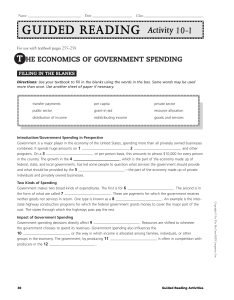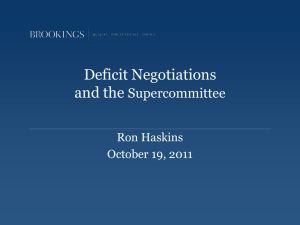Public Policy Key Terms: AP Government Study Guide
advertisement
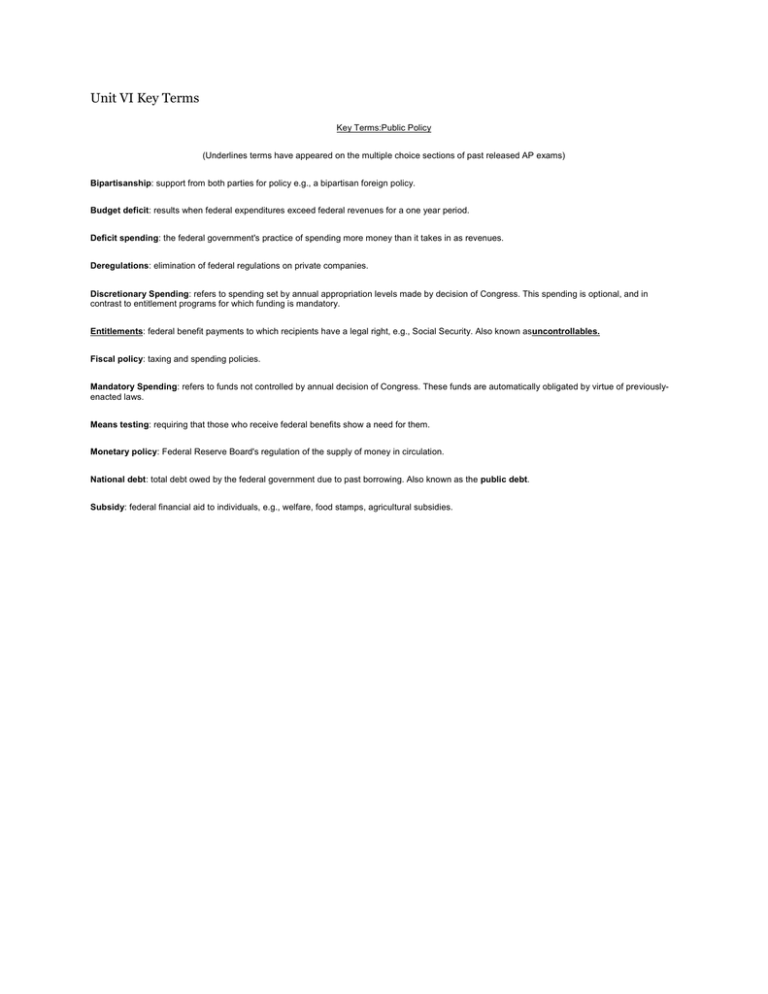
Unit VI Key Terms Key Terms:Public Policy (Underlines terms have appeared on the multiple choice sections of past released AP exams) Bipartisanship: support from both parties for policy e.g., a bipartisan foreign policy. Budget deficit: results when federal expenditures exceed federal revenues for a one year period. Deficit spending: the federal government's practice of spending more money than it takes in as revenues. Deregulations: elimination of federal regulations on private companies. Discretionary Spending: refers to spending set by annual appropriation levels made by decision of Congress. This spending is optional, and in contrast to entitlement programs for which funding is mandatory. Entitlements: federal benefit payments to which recipients have a legal right, e.g., Social Security. Also known asuncontrollables. Fiscal policy: taxing and spending policies. Mandatory Spending: refers to funds not controlled by annual decision of Congress. These funds are automatically obligated by virtue of previouslyenacted laws. Means testing: requiring that those who receive federal benefits show a need for them. Monetary policy: Federal Reserve Board's regulation of the supply of money in circulation. National debt: total debt owed by the federal government due to past borrowing. Also known as the public debt. Subsidy: federal financial aid to individuals, e.g., welfare, food stamps, agricultural subsidies.
